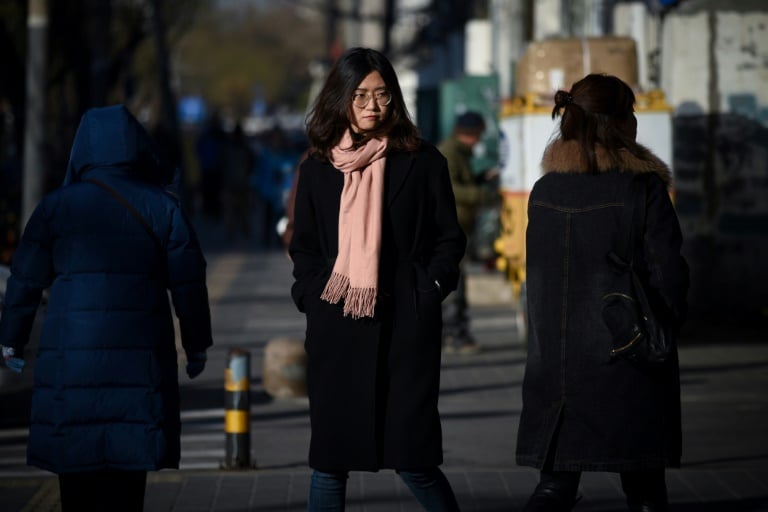Gauteng accounts for large share of SA’s road fatalities during festive season – Maile
Nicknamed “Buddhist Youth”, these young people have embraced a laissez-faire approach to life which has more to do with being chilled out than reading sutras.
“Life is quite tiring,” said 23-year-old Guo Jia, who believes being a Buddhist Youth means “accepting the things you cannot change and going with the flow”.
As a viral Chinese social media post outlined this month, behaviours associated with the largely irreligious Buddhist Youth include eating the same food every day, allowing one’s romantic partner to make all the decisions and being devoid of strong feelings about virtually everything.
They are the latest in a string of subcultures to achieve online fame in China — with labels like “greasy uncles”, a type of pompous yet slovenly middle-aged man, to “cultured youth”, the Chinese equivalent of a hipster.
Some of these labels have been condemned by authorities, but Buddhist Youth have been greeted — appropriately — with indifference.
When Guo first arrived in Beijing, everything — from working at his finance job to riding the subway — made him anxious. Like many of the nation’s young strivers, he came to the capital eager to meet the high expectations he had set for himself.
But more than a year later, he has found peace in letting things be.
“I haven’t been able to stop caring about everything,” Guo said, “but these days I am generally calm and unperturbed. It is enough to just be content with life.”
Such declarations are curious in Xi Jinping’s China, where the president has endeavoured to rally young people in particular around the notion of the “Chinese Dream”.
“A nation will be prosperous if its young generation is ambitious and reliable,” Xi said in 2013.
– Self-discovery –
Chinese millennials’ unique take on monkhood grabbed attention online after a popular public account on the WeChat messaging app, called “Ways of the 21st Century”, described various types of Buddhist Youths in detail.
A “Buddhist Passenger” is someone who chooses to walk to their DiDi (China’s equivalent of Uber) rather than explain their exact location to their driver.
A “Buddhist Online Shopper” is someone who buys the things they like but does not return the things they don’t like.

On the surface, they live ordinary lives, eating lunch with co-workers and playing sports over the weekend. But Buddhist Youths are always wary of overdoing it
And a “Buddhist Employee” is one who desires nothing more than to “arrive at work peacefully and leave work quietly”.
A Buddhist Youth wants nothing because she or he expects nothing — win or lose, adversity or good fortune, they accept it all.
Lin Kexin, a 20-year-old student in eastern Fujian province, said she began to identify more as a Buddhist Youth after acting too impulsively on a romantic crush.
“That was tiring,” she said.
The trend has even caught the attention of the People’s Daily, the official paper of the ruling Communist Party, which published two articles on Buddhist Youth last week.
“This may just be a way for young people to explore their position in society,” the daily said, acknowledging that the identity was a reaction to “life’s quick rhythms”.
The assessment is positive compared to the government’s reaction to “sang” culture, another Chinese millennial attitude that has cropped up in recent years.
In contrast to Buddhist Youths, who pledge to maintain a neutral outlook, the “sang” lifestyle is characterised by unrelenting, sardonic despondency — an approach the People’s Daily called “pessimistic and hopeless”.
– ‘I have no dreams’ –
Years of a strict one-child policy and a rapidly developing economy have placed great pressure on young people to succeed academically and get ahead professionally.
Now, some of them are happily resigned to being ordinary.
“I am just average in everything I do,” said Wang Zhaoyue, a 24-year-old master’s graduate.
Wang works for an architectural urban planning firm in Beijing, and thinks she could achieve more if it were not for her Buddhist Youth philosophies.
“I always did okay in school, but never great. If I underperformed on an exam, I would just tell myself it was because I didn’t care enough to give more than half my effort, which was fine in itself,” she said.
“I can’t really relate when my friends tell me about their goals and ambitions. As for me, I don’t have any dreams.”
On the surface, they live ordinary lives, eating lunch with co-workers and playing sports over the weekend. But Buddhist Youths are always wary of overdoing it.
Guo said he had a sudden urge to improve himself a few months ago. He started regularly going to the gym, playing tennis and studying for a business school exam.
A month later, he fell ill with a headache and runny nose.
“I immediately went back to eating whatever I want and exercising only when I feel like it,” Guo said. “It’s all too tiring otherwise.”
Download our app and read this and other great stories on the move. Available for Android and iOS.